
- This event has passed.
The 40th Buddhist Summer School 2023
January 14, 2023 - January 17, 2023
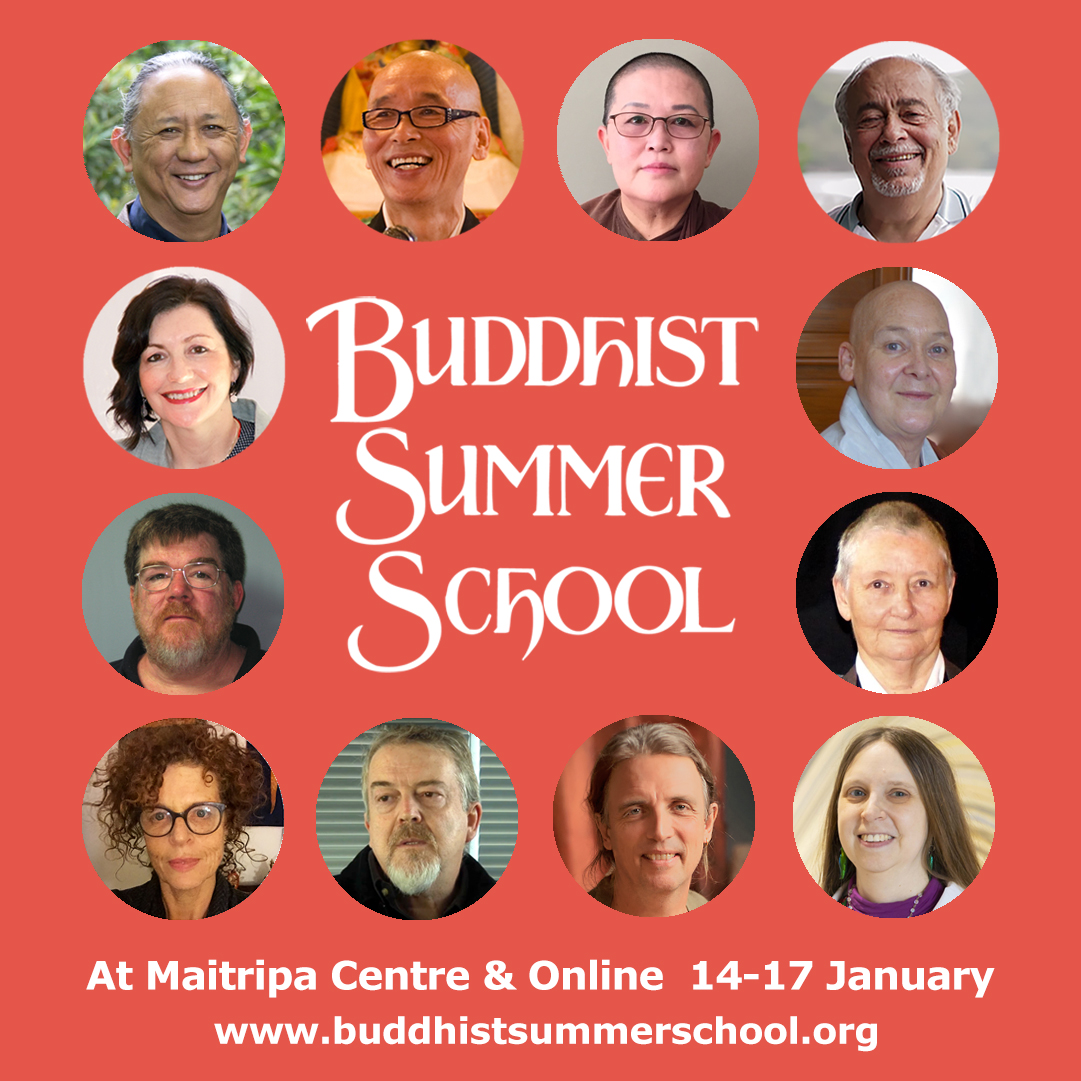
40th Annual Buddhist Summer School 2023
At Maitripa Centre & Online
FULL AND PARTIAL TICKETS ARE STILL OPEN FOR BOOKING!
**Please note: We have SOLD OUT of ACCOMMODATION and FOOD but you can still purchase in-person course tickets**
Start your New Year by immersing yourself in teachings from Theravada, Tibetan and Zen Buddhism.
A rich tapestry of traditions has been woven by Asian cultures around the essence of the teachings of the Buddha who lived more than 2,500 years ago. The enduring nature of Buddhism is symptomatic of its integrity as a spiritual discipline that speaks to contemporary experience, especially in a world of increasing challenge and uncertainty.
Over the 40 years since its founding, the annual Buddhist Summer School has become one of the foremost gatherings in Australia for Buddhists from various traditions to discuss and explore topics related to philosophy, practice, and engagement with Western disciplines such as psychology. Bringing both insight and practical advice from each tradition, the Buddhist Summer School offers a genuinely ecumenical forum for exchange and learning. The 40th annual Buddhist Summer School marks a significant milestone in the history of Buddhism in Australia.
In 2023, the Buddhist Summer School returns to Maitripa Contemplative Centre. Bringing together both local and internationally streamed (remote) teachers, the Buddhist Summer School will be simultaneously presented in-person and online.
Come and enjoy the beautiful environment of Maitripa Contemplative Centre or participate in the Buddhist Summer School from your home. Either way, the Summer School offers a diverse and rich program for both experienced practitioners and those new to Buddhism.O
THE PROGRAM
Download the full Program HERE
Opening Forum
Impromptu Topic To Be Announced
9:30am to 11am Saturday
The opening forum is an opportunity to hear the Buddhist Summer School speakers engage in discussion of the relevance and application of Buddhism to one of life’s big questions. There will be an opportunity for audience members to ask questions. Includes both in-person and online speakers.
This Opening Forum session is free to attend
Our Esteemed Teachers
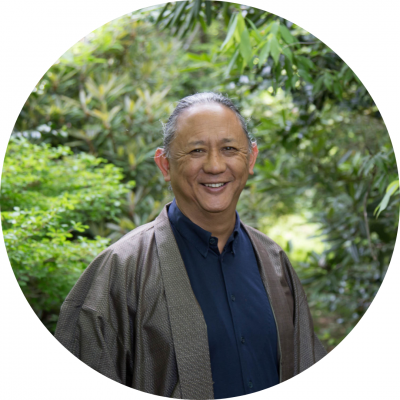
Saturday & Sunday Morning (3 units)
Screened in Lecture Hall 1
The wisdom of dependent origination is the key that opens the door to the view of emptiness. Compassion allows us to relate to all beings with an open, loving heart. These two main aspects of the Mahayana, often compared to the two wings of a bird, are as indispensable today as they were in the time of the Buddha. Developing wisdom and compassion in union, from the beginning of our path until enlightenment, is the essence of the bodhisattva journey.
At the age of nine, Dzigar Kongtrul Rinpoche was recognized as an incarnation of Jamgon Kongtrul Lodro Thaye by Kyabje Dilgo Khyentse Rinpoche and the 16th Gyalwang Karmapa. Raised in a monastic environment, Rinpoche received extensive training in all aspects of Buddhist doctrine, particularly the teachings of the Nyingma lineage from his root teacher, Kyabje Dilgo Khyentse Rinpoche. In 1989 Rinpoche moved to the USA with his family and began a five-year tenure at Naropa University as the first holder of the World Wisdom Chair. During that time Rinpoche founded Mangala Shri Bhuti, an organization dedicated to establishing a genuine sangha of the Longchen Nyingtik lineage in the West. Rinpoche is the author of many books including, It’s Up to You: The Practice of Self-Reflection on the Buddhist Path, The Intelligent Heart: A Guide to the Compassionate Life, and Training in Tenderness: Buddhist Teachings on Tsewa to name only a few. Weaving his ancient spiritual heritage with the many threads of our modern culture, Rinpoche is known for his uncompromising integrity, deep conviction in altruism, and insistence that all beings, whatever their background, can awaken to their own enlightened nature.
*Please note: The Venerable Dzigar Kongtrul Rinpoche will not be appearing in-person, but will be Streaming live to Maitripa Centre and Online.
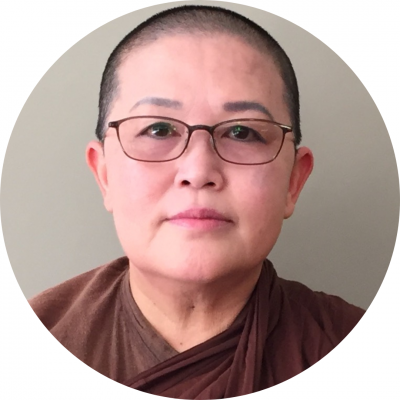
Happiness is a Choice: Working with emotions and developing the Right View on the Path
(In-person and Online)
Ajahn Hāsapañña
Saturday & Sunday Morning (3 units)
Lecture Hall 2
Unit 1: Happiness is a Choice
Nothing will make you happy unless you choose to be happy. No person will make you happy unless you decide to be happy. If you want to suffer, no one can stop you either.
Unit 2: Dealing with Anger
Most people find anger addictive. It makes the ego feel righteous, justified or victimised. The Buddha says: ‘holding on to anger is like drinking poison and expecting the other to die.’
Unit 3: Samma Ditthi (Right View) from Sutta Majjhima Nikaya 9
The one of Right View, is the one whose view is straight, has unwavering confidence in the Dhamma, and has arrived at this true Dhamma.
Ajahn Hāsapañña was born in Ipoh, Malaysia in 1960. During her days as a lay person, she and her family generously supported Ajahn Sujato when he was practicing in Ipoh. The main influence in Ajahn Hāsapañña’s spiritual development is the monastic lifestyle of the forest tradition. When Ajahn Hāsapañña had developed enough courage and inspiration to become a nun, Ajahn Sujato pointed her to join Dhammasara Nuns Monastery. She joined Dhammasara in 2002, beginning her monastic training as an Anagarikaa (trainee nun keeping 8 precepts). She was then ordained as a Ten Precept Nun with Ajahn Vāyāma as her teacher. She subsequently took her higher ordination as a Bhikkhuni in 2009 with Ayya Tathāloka as her preceptor in a ceremony at Bodhinyana Monastery, WA, Australia. Currently, Ajahn Hāsapañña is the Abbot of Dhammasara Nuns Monastery and Assistant Spiritual Director of The Buddhist Society of Western Australia. She is also the Spiritual Director of Santi Forest Monastery in Bundanoon, NSW. Santi Forest Monastery is a new branch monastery of Dhammasara. She is heavily involved in developing nun communities as well as delivering Dhamma teaching to nuns and lay people.
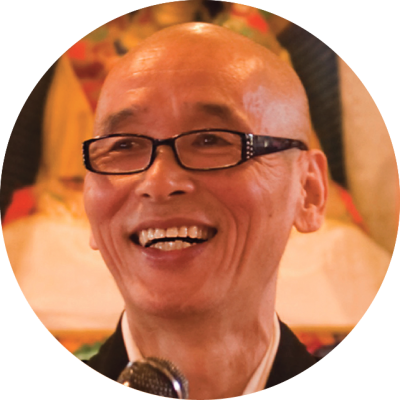
Discussion On “Shoji ” (Life-and-Death)
(In-person and Online)
Ekai Korematsu Roshi
Saturday & Sunday Afternoon (4 units)
Lecture Hall 2
Zen Master Dogen, in his Shobogenzo, in the chapter “Shoji”, declared: “The most important issue of all for Buddhists is the thorough clarification of the meaning of birth and death. If the Buddha is within birth and death, there is no birth and death.” Sho literally means “life” and ji means “death”; so, shoji means “life and death.” We have the words “life” and “death,” but Master Dogen did not recommend for us to understand intellectually what our life and death are. He found value in our real day-to-day life itself. So, in this chapter, Master Dogen explained life-and-death as the real momentary state of our daily life in which life and death are combined.
Ekai Korematsu Roshi has been serving as Abbot and Resident Teacher of Jikishoan Zen Buddhist Community in Melbourne since 1999. Born in Japan in 1948, Roshi studied humanities and Buddhism in Denmark, USA and Japan. He was ordained by Kobun Chino Roshi at Haiku Zendo, Los Altos, California in 1976 and received Dhamma transmission from Ikko Narasaki Roshi in Japan at Zuioji Monastery in 1986. His formal training was twelve years in three Zen monasteries; Eiheiji, Zuioji and Shogoji. His Buddhist education is through Soto Zen Buddhism.
Roshi has taught Buddhism in Australia, New Zealand, Japan, India and the United States of America for the past forty years. Ekai Roshi is the main Teacher and Director of Jikishoan’s “Zen and Integrated Buddhist Studies” Program. And a Faculty Member of the Overseas Buddhist Studies Program Bodh Gaya India of Carleton University. Through Traleg Rinpoche IX’s invitation, Roshi has taught at the Buddhist Summer School and Winter Zen Lectures at the Kagyu-Evam Buddhist Institute in Melbourne, since 2002.

Discernment in Life; Self Acceptance in Meditation
(In-person and Online)
Traleg Khandro
Saturday Afternoon (2 units)
Lecture Hall 1
The fundamental view of Mahamudra meditation is that we have everything we need, we are complete. That is, our Buddha Nature is fully developed, yet due to our delusions it remains hidden and seemingly inaccessible. An essential part of the practice of Mahamudra meditation is to arrest judgement. How do we rest in meditation and remain non-judgemental to all that we would normally place judgement upon? If we normally judge ourselves with a sense of duality- seeing ourselves as good or bad, acceptable or unacceptable, how would non-judgementalism help us to uncover our greatest potential and true nature? Without judgement, how do we progress on the spiritual path? As a commentary on Traleg Kyabgon Rinpoche IX’s teachings on Mahamudra, Felicity will discuss how being non-discriminating in meditation can assist us to be more discerning in daily life, and how this approach has the potential to enhance our well-being and aid our spiritual progress.
Traleg Khandro (Felicity), is a long-time student and wife of the late Traleg Kyabgon Rinpoche IX. Khandro studied Buddhism under Traleg Rinpoche’s guidance for many years and has undertaken numerous long meditation retreats. Khandro has given commentary of Rinpoche’s teachings in Australia, America, Europe, U.K., and South East Asia. At Rinpoche’s request Khandro received traditional LuJong (Tibetan Yoga) training after qualifying as a Hatha Yoga instructor. Khandro has a degree in Psychology.



Realising the Postsecular Sacred: A Conversation
(In-person and Online)
Jakob Leshley (Streaming live to Maitripa Centre and Online)
Dr David Tacey (In-person and Online)
and Dr Kathleen Gregory (In-person and Online)
Sunday Afternoon (2 units)
Lecture Hall 1
Secularism has long dominated the current modern worldview. Yet, in recent decades, significant voices within the sciences and humanities have challenged the atheist stance intrinsic to secular and materialist ideologies. Rather than a return to premodern ideas of religion, well-known Australian writer and public intellectual Dr David Tacey proposes spirituality as an emerging paradigm. His recent book, The Postsecular Sacred: Jung, soul and meaning in an age of change (2020: Routledge), explores the theme of the sacred as a natural development in a world that has lost sight of the meaning and the value of our existence. Join David Tacey in discussion with Jakob Leschly and Kathleen Gregory as they explore themes related to the sacred, meaning and religiosity; a conversation relevant to Buddhists and non-Buddhists alike.
David Tacey, PhD, is an Australian scholar and public intellectual who works across the fields of spirituality studies, analytical psychology, psychology of religion, literature and continental philosophy. David grew up in Alice Springs, central Australia, where he became involved in Aboriginal cultures and has maintained a life-long interest in Aboriginal cultures and spiritualities. He is the author of sixteen books in his areas of interest, and they have all been published internationally, mainly in London and New York. His books have been translated into Chinese, Korean, Russian, Turkish, French, Portuguese, and Spanish. His most recent book is The Postsecular Sacred: Jung, Soul, Meaning in an Age of Change (2020) which serves as the basis for this conversation.
Jakob Leschly is an instructor of Buddhist theory and practice in Dzongsar Khyentse Rinpoche’s Dharma organisation, Siddhartha’s Intent Australia. He began his studies of Buddhism in 1974 and has studied with numerous great teachers, particularly Kyabje Dilgo Khyentse Rinpoche, Kyabje Dudjom Rinpoche and Dzongsar Khyentse Rinpoche. He has served Siddhartha’s Intent since 1993 and presently lives in NSW.
*Please note: Jakob Leschly will not be appearing in-person, but will be Streaming live to Maitripa Centre and Online.
Kathleen Gregory PhD has been a Buddhist for nearly thirty years and a long-time student of Traleg Kyabgon Rinpoche IX. She is a psychologist and also holds an academic position in the School of Education at RMIT University. She has taught in the area of Buddhism and psychotherapy for many years at E-Vam Institute and affiliated international centres. She taught in the Graduate School of Counseling and Psychology at Naropa University in Boulder; from 2015-2019 and served as Dean of the School before returning to Melbourne.
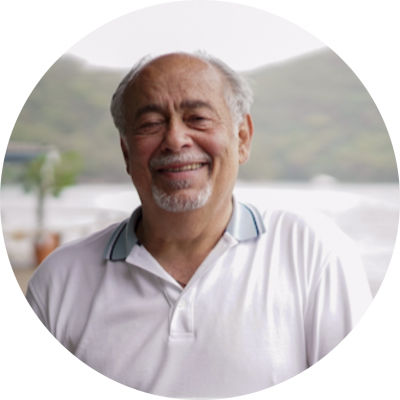
The Five Buddha Families and the Dakini Principle
(Streaming live from the California US to Maitripa Centre and Online)
Sam Bercholz
Monday and Tuesday Morning (4 units)
Screened in Lecture Hall 1
The Buddha wisdom, which is beyond imagination, naturally appears in the mandala in the five different kinds of enlightenment, or five wisdoms. This is known as the five Buddha families. These five contain the possibility of both confusion and wisdom, samsara and enlightenment. We can see every single aspect of life in terms of these five families—emotions, thoughts, environment, nature, living beings, art, music, colours, jobs that people do, organisations, and every kind of thing that you could think of. This is a way of seeing the Buddha-nature in absolutely everything, and the potentialities for waking up through every event that comes into our lives. We will explore links to the five Buddha families and their respective Wisdom Dakinis, and show how each element relates to our senses, temperament, passions, habits, and karmic potentials.
Suggested reading: Magic Dance: The Display of the Self-Nature of the Five Wisdom Dakinis by Thinley Norbu.
Sam Bercholz, the founder of Shambhala Publications, is a lifelong Buddhist educator. He holds the lineages of Karma Kagyu and Dudjom Tersar Nyingma. He has been a close disciple of Kyabje Thinley Norbu Rinpoche and Chögyam Trungpa Rinpoche, and was empowered by both of them to teach buddhadharma.
*Please note: Sam Bercholz will not be appearing in-person, but will be Streaming live to Maitripa Centre and Online.

Next-Wave Buddhist Mental Health Interventions –
Exploring Under-utilized Buddhism-derived solutions
(In-person and Online)
Dr Julie Brefczynski-Lewis
Monday and Tuesday Mornings (4 units)
Lecture Hall 2
The current exacerbation of mental-health challenges suggests it is unlikely that just mindfulness-based interventions (MBIs) will be enough to restore whole-health to all. MBIs have often shown significant benefits in research studies, however, in practice, they fail to systematically address the full spectrum of life experiences and can even lend themselves to be exploited in a way that serves individualism and selfish intent. It therefore seems unwise to ignore the healing potential that may come from adaptations of more religiously-embedded practices in the Buddhist traditions. As a neuroscientist, I will describe the potential mechanisms of why less commonly highlighted practices might be useful in terms of evolutionary structure and functional brain dynamics; and as a practitioner, I will discuss details, guided meditations, potential adaptability and ethical implications.
Four sessions will include:
1) Not Reinventing the Wheel for Healthcare: Lessons from Tibetan medical education
2) Secular Mind-Training and Compassionate Intent: Empowering lasting well-being by overcoming selfishness, plus extremely practical advice on topics like regret!
3) Meeting our Need for Belongingness: Pro-social practices, secular sangha-ship, and ritual
4) Buzzed, Confident and Relaxed: Potential applications of energy and tantric-derived visualization practices
Dr. Julie Brefczynski-Lewis is a Research Assistant Professor in the Department of Neuroscience at West Virginia University. She received her PhD in Cell Biology, Neurobiology, and Anatomy from the Medical College of Wisconsin. Brefczynski-Lewis has been practicing and researching meditation practices for more than 20 years. Currently, the Brefczynski-Lewis lab is testing the effectiveness of compassion meditation to help deal with the stress and negative emotions related to difficult interpersonal relationships, and has helped developed novel neuroimaging methods that allow more natural behavioural testing. As a student of Traleg Rinpoche, she is excited to be part of the Summer School.
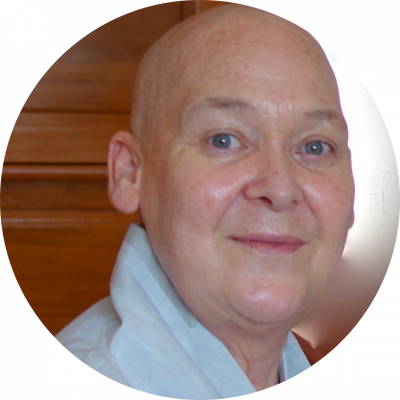
Zen Arts on Form is Emptiness, Emptiness is Form
(In-person and Online)
Venerable Chi Kwang Sunim
Monday and Tuesday Afternoon (4 units)
Lecture Hall 1
This will be a creative-based Zen experience through learning and practicing Arts of Chinese Calligraphy, Tea Ceremony and Flower Arrangement. You will gain an introduction to these practices as a means to develop insight through practical application on the meaning of the classic line from the Heart Sutra, Form is Emptiness and Emptiness is Form.
Discover through the basic discipline and practices of Zen Arts, how to work with the six conscious doors of sight, sound, smell, taste, touch and thought, and appreciate the creative play of engaging, seeing, hearing, smelling, tasting etc. when practicing Zen Arts. Let us learn and practice the ancient art of Calligraphy and explore the art of playful Brush Strokes and mark-making including how to hold and use a large or small brush, how to grind ink in an Inkstone. Learn about Calligraphy paper and brushes, their qualities and capabilities. Be introduced to the four main styles of traditional calligraphy and practice one or two. Learn the value of free flow and spontaneous brush play and create our own meaningful Zen Character to hang on the wall. We will participate in a Korean Tea Ceremony, learn its history and hear Zen Tea stories. We will also learn a little about the beautiful Art of Flower Arranging and make our small unique personal, Zen flower arrangement.
Ven. Chi Kwang Sunim is a Korean Zen Buddhist nun of 40 years. She lived and trained for 20 years in South Korean mountain monasteries, cultivating Buddhist studies and Seon (Zen) meditative practices. Sunim teaches Seon, Zen arts and Buddhist studies, online or in her forest hermitage in Kinglake. As a Senior monastic in Australia, she has chaired various associations, including the Buddhist Council of Victoria (BCV) and the Australian Sangha Association (ASA) & co-founded several centres. Currently she serves on the BCV in creating a Buddhist Library. Sunim also travels broadly when responding to invitations to teach or offer retreats and is often seen presenting at Interfaith and intra-Buddhist conferences.
Please note: You can participate in this course online! Upon booking, you can ask to be sent a calligraphy pack. This option closes on January 10.
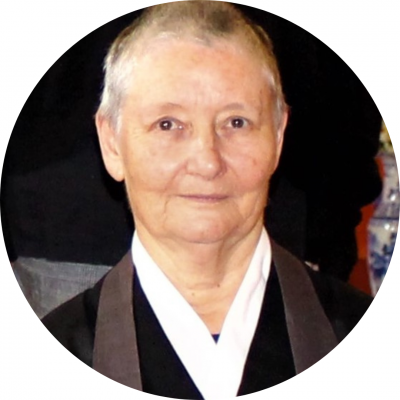
Zen Mind, Beginner’s Mind: An Introduction to Zen Meditation
(In-person and Online)
Teishin Shona Innes
Monday Afternoon (2 units)
Lecture Hall 2
In these sessions, the three forms of Zen meditation – bowing, sitting and walking – will be introduced and practiced. The classic text, ‘Zen Mind, Beginners Mind‘ by Shunryu Suzuki Roshi, will be used to support this essential practice through reading, reflection and discussion.
Teishin Shona has been a student of Ekai Korematsu Roshi, Abbot of Tokozan Jikishoan for the last 18 years. Prior to that she practiced for 9 years under the guidance of the Venerable Traleg Kyabgon Rinpoche. Shona has completed 13 years in Jikishoan’s Integrated Buddhist Studies (IBS) and has been the coordinator of Main Course B (Community Practice) for nine years. Shona completed Head Student training in 2013 and received Bodhisattva Initiation (Lay Ordination) in 2014. She has completed Jikishoan’s 3-year Assistant Teacher Training and is currently coming to the end of a 3-year Intern Teacher Training program. Shona is the President of Jikishoan’s Committee of Management.

A Radical Vision of the Middle Way: Wanchuk Dorje’s Madhyamaka
(In-person and Online)
Dr John Powers
Tuesday Afternoon (2 units)
Lecture Hall 2
In his “Concise Compendium of the Middle Way”, Wanchuk Dorje, the ninth Karmapa, presents a radical interpretation of Madhyamaka. According to the Karmapa, Mādhyamikas who correctly understand their tradition do not make any assertions in any contexts. They do not even accept that they assert nothing. When engaged in Madhyamaka work, they only refute the wrong views of others but present none of their own. In this, he follows Nāgārjuna’s assertion in Refutation of Objections: “I have no thesis”. Other Mādhyamikas refuse to take Nāgārjuna at his word and interpret him as implying that he has “no inherently existent thesis” or “no thesis that can be put into words” or other formulations. But Wangchuk Dorje develops the ramifications of a positionless approach to philosophy, and he believes that this is what Nāgārjuna intended. Furthermore, the Karmapa presents this as the ultimate stance of Mahāmudrā. Only those who completely abandon attempts to present theories can comprehend ultimate reality. This talk will explore the context in which Wangchuk Dorje wrote and how he develops his uncompromising vision of Madhyamaka.
Dr John Powers is an expert in Indian and Tibetan Buddhism and a Fellow of the Australian Academy of Humanities. He is the author of 18 books and more than 100 articles, spanning a wide range of topics including Buddhist philosophy and soteriology, Chinese government propaganda on Tibetan Buddhism, gender, and human rights. He currently holds a joint appointment in the University of Melbourne’s Contemplative Studies Centre and the School of Historical and Philosophical Research.
The Program Timetable
Download the Full Program HERE

For our International friends, all times are listed in Melbourne AEDT, check your timezone here: www.worldtimebuddy.com.
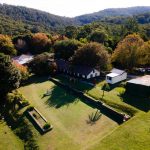
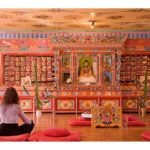

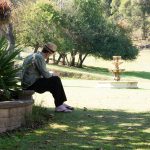
THE VENUE
MAITRIPA CENTRE
Come and enjoy the Summer School experience at the beautiful Maitripa Centre. Established by Traleg Rinpoche IX, the Maitripa Centre is surrounded by the beautiful lush Toolangi forest amongst the upper Yarra Valley, amongst a stunning array of wildlife.
The Maitripa Centre is 5 minutes from Healesville Town and just 75 minutes from Melbourne CBD.
The event is professionally catered, with delicious and healthy vegetarian meals with the opportunity to enjoy a barrister coffee and cake at Dogen’s cafe during the day and relax with a glass of wine at Apsara bar in the evening. All amidst a conducive environment of like-minded people, coming together to learn from the profound resource of practice and wisdom that the traditions of Buddhism have to offer.
OR…

ONLINE VIA ZOOM- FROM HOME!
Online participants are very welcome and can enjoy the Buddhist Summer School from the comfort of their own homes!
,
TICKET INFO & BOOKINGS
For our International friends, all times are listed in Melbourne AEDT, check your timezone here: www.worldtimebuddy.com.
Online & In-Person Course costs: Opening Forum: Free • Half day pass: $45 (Saturday am $22) • Full day pass: $80 (Saturday $60) • Full Summer School: $280
Course Discounts: HCC Holder 10% (code: concession) – Members 10% (code: member) Under 35 30% (code: under35) Students 30% (code: student)
All prices in Australian Dollars (AUD)
Food & Accommodation at Maitripa Centre ***SOLD OUT***: Starting at $130 • Full Summer School $360.
*The event is catered with delicious vegetarian food- Please note: Meals cannot be purchased at the event. All meal must be purchased prior to the event. Dogen’s Cafe and Apsara Bar will be open to purchase drinks.
Please note that Food and Accommodation tickets Are Closed. All meals are pre-purchased prior to the event and cannot be purchased on site. Participants are welcome to bring their own packed Picnic Lunches. Dogen’s Cafe will be open for barista coffee and light refreshments.
Food & Accommodation Discounts: Members only 10% (code: member)
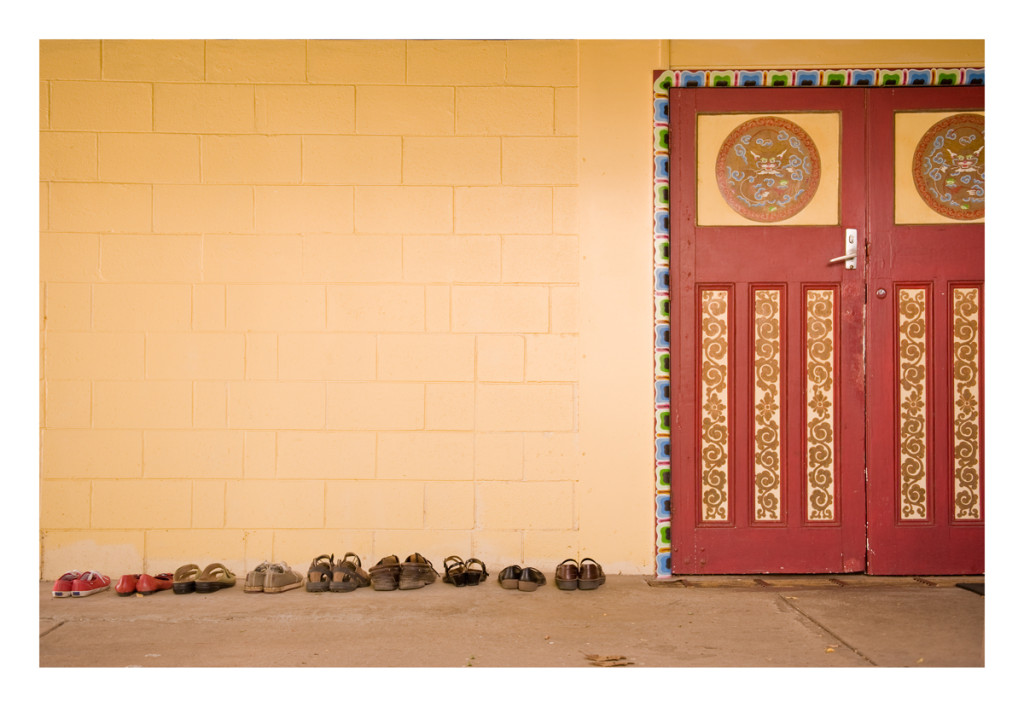
Details
- Start:
- January 14, 2023
- End:
- January 17, 2023
Organiser
- E-Vam Institute
- View Organiser Website
Venue
- Online and at Maitripa Cente
-
528 Myers Creek Road
Healesville, VIC 3777 + Google Map - View Venue Website
